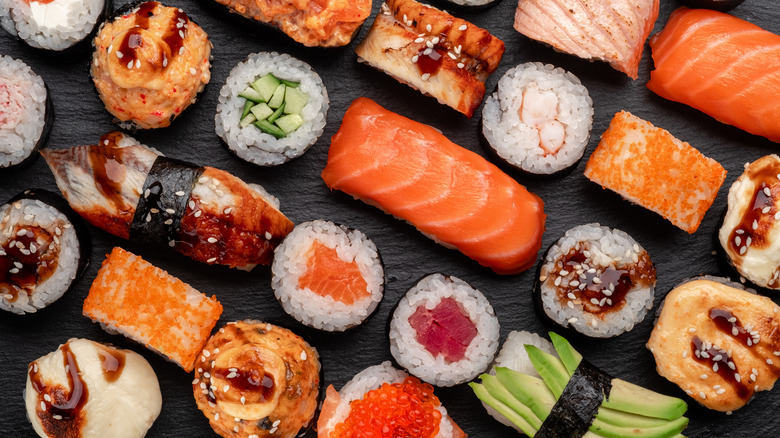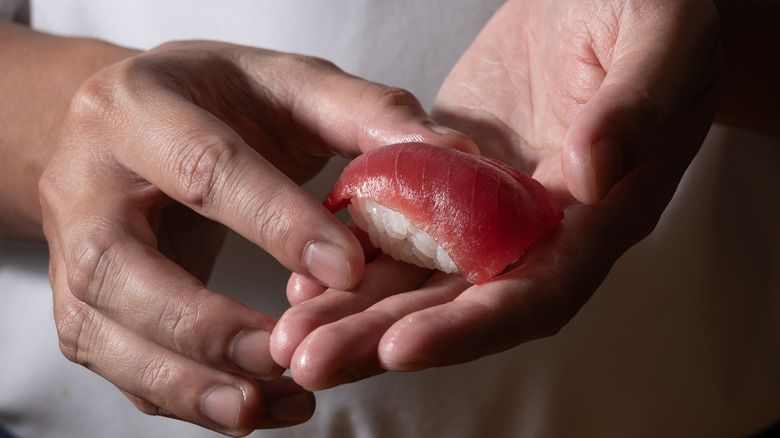Why Fish Tastes So Much Better On Sushi
Sushi – you either love it or you hate it. Some find the idea of eating raw fish gross, others can't get past the texture. While most assume sushi comes from Japan, it originated in China as a way to preserve rice and fish, then made its way to Japan (via Roka Akor). However, what we know today as sushi is widely accredited to Hanaya Yohei. Instead of waiting for fermentation, he hand-molded vinegar rice balls and placed sliced fish on top. He sold pieces on the street out of a box, and workers could eat them on the go (via The Sushi Geek).
Eating raw fish actually has several health benefits. Uncooked fish contains sources of healthy omega-3 fatty acids that decrease when cooked, and raw fish doesn't contain harmful components like heterocyclic amines, which are present in fish cooked at high heat (via Healthline). There is, of course, always a risk to consuming raw fish, such as bacterial and parasitic infections and pollutants in the meat itself.
All that being said, some gourmands prefer the taste of a buttery, raw slice of salmon kissed with soy sauce to cooked salmon, and there is a reason for it.
Fish don't have to fight with gravity
Reddit has posited that raw fish on sushi tastes so much better because of a combination of perfectly-balanced flavors. One Redditor wrote, "A single piece of nigiri combines almost all the taste elements together which are what makes it so great. Sweet, sour, and salty from the rice, savory from the fish, and umami from the soy sauce." Another commented, "I love the texture and flavors of sashimi."
Texture plays a crucial role in the difference between cooked and raw fish. The lack of gravity is what makes the fish on your sushi taste so good. It's not a dad joke, either. According to NPR, fish don't have to support their body weight as they swim, unlike land-bound cows, pigs, and chickens. The muscle fibers in fish are shorter than, say, a cow, which walks and supports its weight in an eternal fight with gravity.
In other words, a cow works harder; therefore, its muscle proteins are much tougher than a fish, which lazily swims along, not worrying about gravity. All this laziness means fish is more tender than beef or pork. It's also why tuna belly, otoro, is delicious – it's the least used muscle, so it's soft, delicious, and therefore precious to sushi chefs. When you cook fish, the meat flakes, which some may not prefer.

